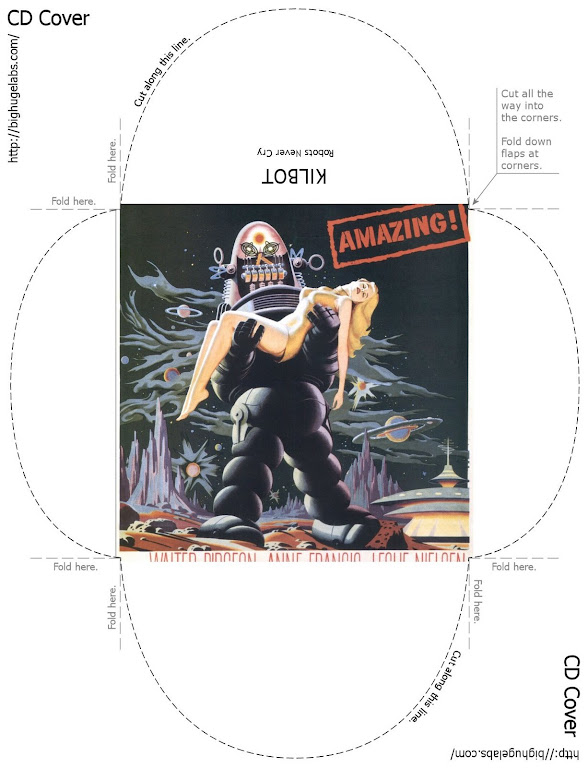This article pretty much sums up how I feel about "social networking" sites:
http://www.guardian.co.uk/technology/2008/jan/14/facebook
Sunday, April 6, 2008
File Sharing
I was not aware of the existance of share programs such as google docs until now. It will be very useful at our library - often customers come in to the library and work on a document (a letter for example) but don't bring a saving device. They can save it to the hard drive, but at the close of business everything is wiped. I will certainly recommend google docs to such customers.
I also like the collaborative potential of these programs.
I also like the collaborative potential of these programs.
Thursday, March 27, 2008
pod casts
I think pod casts would be particularly suited to oral history, esp for local studies departments.
Tuesday, March 25, 2008
Slamming the boards
I'm happy to discover that librarians are "slamming the boards", as there is so much conflicting and just plain wrong information given out on those "ask a question" sites. Just the other day I asked myself "do camels have padded feet or hooves?", a question any reasonable person would ask themself each and every day until satisfied, and every second answer given by a simple web search was different.
It's difficult to say how much of a take-up our library would get in terms of offering a "rate/review collection" option on our website. I think that the results we might get would be quite skewed.
It's difficult to say how much of a take-up our library would get in terms of offering a "rate/review collection" option on our website. I think that the results we might get would be quite skewed.
Thursday, March 13, 2008
Library Thing
I found library thing to be very useful - it has gotten to the point where I could use an injection of new reading material from "like minded" people. "Delicious" seems handy too, kind of like having your "favourites" folder available on any computer you happen to be using. The instructions on how to place the Library Thing widget onto your blog seemed to be missing half the steps to achieve it - but I got there eventually...
Wednesday, March 12, 2008
YouTube/Google video
I don't often use youtube or google video, and when I do it is usually through a link from a news magazine website (such as "the onion") and ninety percent of the time the motivation is to get a laugh out of it. However, I can also see the vast array of possibilities for libraries - a great way to involve youth at the library (make a short movie set in a library, etc), personal histories, documentation of change in progress in "our town" and so on. Politically, as with the internet in general, video share sites can be a great way of exposing injustices in places that have strict media controls, and expose plights which are routinely ignored by mainstreem media. But of course that begs the question of how you would be exposed to such information if you weren't looking for it in the first instance? I could go on a long rant about media control, manufactured consent and hegemony here but I'll refrain. I will say that video share sites (as with the internet in general) are a potentially democratizing force - at least for the very small minority of the world's population who actually have access to it.
Tuesday, March 11, 2008
wikis
I can admit to looking at wikipedia every now and then to find some information, but generally only if the information is frivolous or quickly satisfies a fleeting curiosity I might have (example, what are the names of the seven robots Bruton destroyed in Astro Boy episode "The World's Greatest Robot"?). I would never source it in an academic sense, because even though I haven't come accross many glaring errors in wikipedia - excluding the terrible grammar and poor sentence and paragraph construction that plagues wikipedia - I did take the time to read a few "history" tags for a number of articles with a charged political dimension (eg Russian Revolution, or Israel/Palestine). Wikipedia seems to me a battleground where people try their best to shape the an article according to their ideological agenda. In la-la land, this would be a wonderful thing, where people of polar opposite opinions and all those between create something that is magically "neutral" and "truthful". But in the real world what actually happens are endless "edit war", resulting in mangled, poorly organised and ultimately poorly written articles with a "NOPV" obsession. Non Point of View? How can one not have a "point of view"? About anything? Neutrality is neutering. If I want an understanding of a particular topic, I want the information I find to have a point of view, and not hide it. I hate nothing more than high-brow claims to objectivity, or the striving for it. Nothing produced can lay claim to objectivity - not world book, or britannica or wikipedia, and the whole concept should be jettisoned. Get off the damn fence! Did I get off track here? ha ha
Subscribe to:
Posts (Atom)
